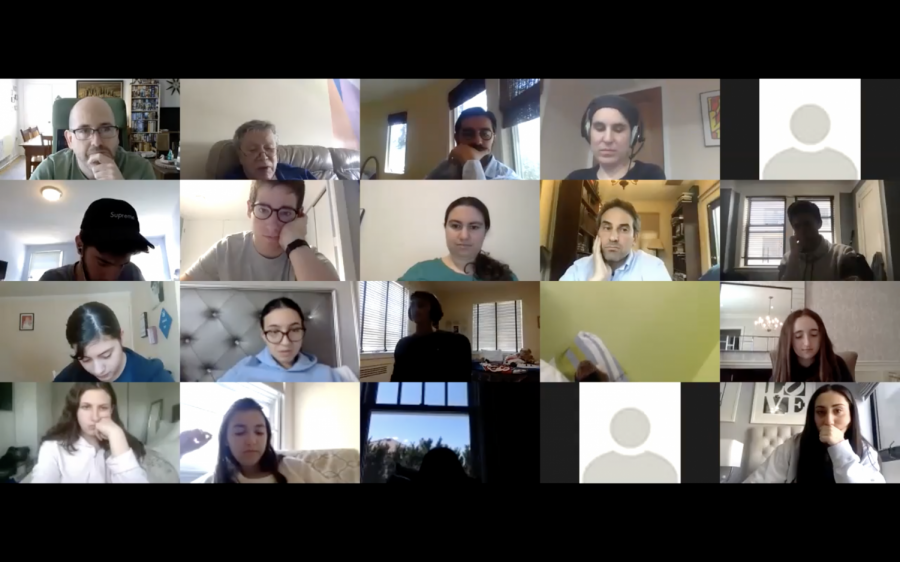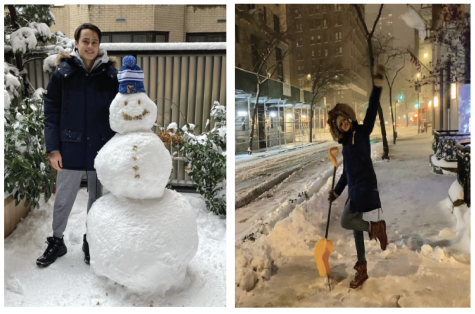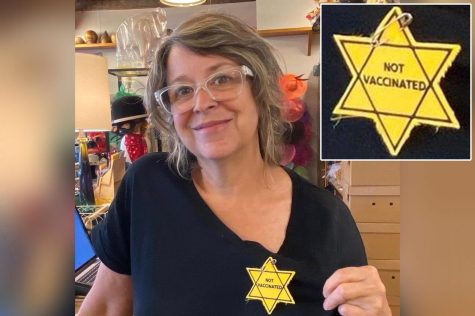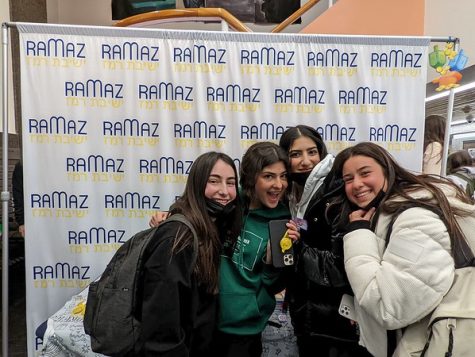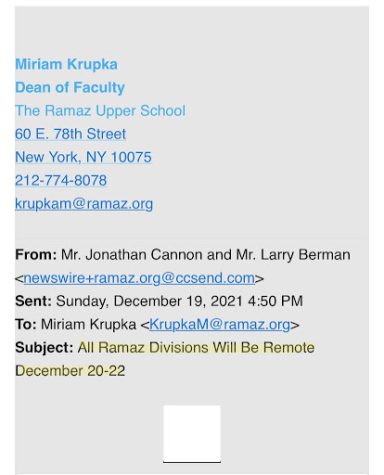The Final Classes: Senior Programming in May
Everyone knows that the highlight of their four years in high school is the second semester of senior year. No work, easy classes, and their grade rules the school. At Ramaz, this idealized experience is complete with a grade-wide Poland trip. However, unfortunately for this year’s seniors, one thing reigns even above them: COVID-19.
While usually seniors spend May preparing for Poland and traveling there, participating in work-study, and getting excited about graduation, as Ramaz transitioned to Zoom, this became an impossibility. Instead, teachers were forced to create new classes and programs to engage the almost-graduates, but also not be too intense. The school asked students for suggestions of activities for the month of May. Ms. Dashiff, who was one of the teachers organizing these programs, said, “The seniors still wanted to have a memorable experience, even if it was not what was planned.”
From Monday to Thursday, a morning class was taught. Each hour-long class focused on a different topic that would never have been taught in a semester-long course, all relating back to the week’s theme. The themes included “Building Blocks,” “Digging Deep,” “Looking Forward,” and “Reflections.” The classes ranged from sessions about farming to a history of Rabbi Akiva to a teacher’s experience living in Israel. Seniors were required to attend two classes each week. According to Sophia Kremer ’20, “The teachers really went out of the box.” She specifically enjoyed Dr. Gaylord’s class on Disney World, which focused on the company’s creation and the details in each theme park.
After a lunch break, the activities continued, and each day held a different Zoom adventure. Mondays were designated for optional student-taught classes. Approximately 15 students signed up to teach their peers about a hobby they enjoyed. Seniors were able to learn how to make a crossword puzzle or meme, how to body-build, how to do improv, or how to publish a book. Classes like baking, Zumba, and arts and crafts were interactive, which was a special touch that could only be done with online classes. Ms. Dashiff said that these classes were an “amazing experience for students to learn how to organize and teach a lesson.” She explained that although students missed out on work-study, this program was partly professional. It allowed students to “discover a love for teaching and sharing what they know.” Many students were inspired by their friends, and after sitting in on a few classes, signed up to teach one themselves. Rachel Araten ’20 taught a class on DIY dorm decor. She said, “I wanted to teach a class that was applicable to everyone and that everyone can follow along with and do.” Araten’s prompt was “New York inspired Art” and found that each student took it in a totally different direction. She was excited to see that “everyone in the class was really engaged.” According to Ms. Dashiff, “It would be a phenomenal idea to continue these student-taught classes next year. Both the ‘teachers’ and students learn a lot from these experiences.”
On Tuesdays, seniors signed up for a mandatory course. Originally, they could only choose between Senior Film Festival and Chesed/Social Action, but an Israel course was soon added after students expressed that they wanted more options. The film class was led by Ms. Rachel Rabhan and guest teacher Ms. Sophia Peer. The class was geared toward aspiring filmmakers and, through the course, students created a five-minute film for the Inaugural Ramaz Film Festival. Araten said, “This class was really helpful because it taught me the skills I needed for Celebration of the Arts.” At first, the new software seemed intimidating, but after taking the course, she was ready to conquer Celebration. The Chesed class, taught by Ms. Benel and Ms. Messinger, met with program directors of service agencies who were challenged to adapt to the coronavirus reality. They interacted with the recipients of these programs and saw the impact of the organizations first hand. Last, Rabbi Yigal Sklarin’s Israel class focused on various questions about Israeli politics and society. Students learned from Ramaz teachers Dr. Herzog and Dr. Bernstein and guest speaker Nadav Shoval, the CEO & Co-Founder of Spot.IM.
Wednesdays were senior speaker days. These speakers, many of whom were Ramaz alumni, prepared students for life after high school. Seniors heard from former Columbia Law School Dean of Students Michelle Greenberg-Kobrin ’91 about what it is like to be a Jew on a diverse college campus. Another practical class focused on financial literacy, as next year, many seniors will be tracking their finances for the first time.
For many seniors, Thursdays held the most riveting activity of all: the Great Debates. Each week, three teachers, moderated by Dr. Jon Jucovy, would battle it out on the debate floor about issues such as morality, feminism in Judaism, and politics. While teachers aren’t encouraged to share their political and personal beliefs in a classroom setting, the goal of this forum was for them respectfully do so. It can be challenging for students, especially underclassmen, to make sense of all these different clashing opinions. Gabi Potter ’20 said, “I have been in many different teachers’ classes and felt conflicted. I could hear one opinion first period and be taught an opposite view during second period. It is easy to agree with each teacher, but at the end of the day, it is difficult to reconcile all these views. The Great Debates was a good culmination and highlighted the strong views we hear at Ramaz.” For the first time, these seniors had the opportunity to see and hear as their teachers were encouraged to share their views. Kremer said, “It was very civilized and organized and showed that a discussion can be charged while still being respectful.”
The 2020 graduates spent their last month at Ramaz learning from teachers and one another and trying new things, even online. They were thrown a major curveball, but, with the guidance of their incredible teachers, they were able to still end their time at Ramaz in a positive way.
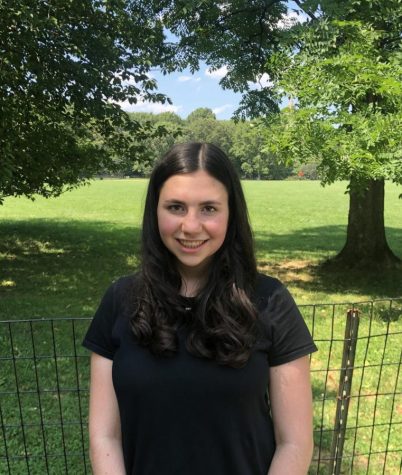
Rebecca Massel has been a journalist since lower school and is excited to be an editor-in-chief of The Rampage. She has been an active writer for the paper...

